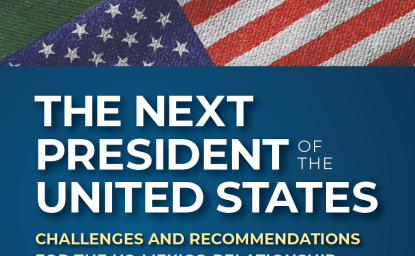#77 Continuity of Change in US-Mexico Land and Water Relations: The Politics of the International Boundary and Water Commission

By Stephen P. Mumme
This paper examines the politics of the International Boundary and Water Commission, United States and Mexico (IBWC), focusing on the Commission's work in the post-1944 period. The study shows how the Commission has managed problems within its jurisdiction, the elements of its institutional stability, and how it has been affected by changing circumstances.
The basis of the Commission's success is attributable to both its formal treaty powers and a range of informal practices adopted pragmatically to serve the IBWC's needs in the borderlands. The combination of these formal and informal elements is evident in the main features of the Commission's diplomacy which stress its exclusive jurisdiction, brokerage functions, emphasis on technical expertise, pigeonholing of political issues, and ad hoc agenda.
While these features of its diplomacy remain unaltered, the Commission's agenda and institutional context have changed over the last decade. Jurisdictional expansion, inclusion of more interests and actors, greater emphasis on the political as opposed to the technical aspects of diplomacy, and a modestly more comprehensive approach to land and water problems mark the Commission's evolution.

Latin America Program
The Wilson Center’s prestigious Latin America Program provides non-partisan expertise to a broad community of decision makers in the United States and Latin America on critical policy issues facing the Hemisphere. The Program provides insightful and actionable research for policymakers, private sector leaders, journalists, and public intellectuals in the United States and Latin America. To bridge the gap between scholarship and policy action, it fosters new inquiry, sponsors high-level public and private meetings among multiple stakeholders, and explores policy options to improve outcomes for citizens throughout the Americas. Drawing on the Wilson Center’s strength as the nation’s key non-partisan policy forum, the Program serves as a trusted source of analysis and a vital point of contact between the worlds of scholarship and action. Read more

Explore More
Browse Insights & Analysis
Latin American Program Working Paper Series (51-100)


